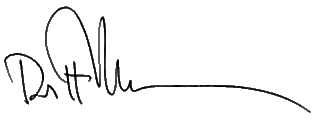| Dear Readers,
This final issue of the year 2009 consists of two parts: the first
3 papers have been peer-reviewed by members of the J.UCS editorial
board and deal with subjects from the areas of mathematics of
computing, software engineering and knowledge management. I'd like to
take this opportunity to thank the reviewers of these papers as well
as all other members of the editorial board for their continuous
support — many of them have been with us since the first issue of
J.UCS 15 years ago!
The second part of this issue is a special section with the title
"Interactions between Discrete-event Control and Computer
Science". The guest editors of this section are Jean-Michel
Muller from the CNRS-Laboratoire LIP, ENS Lyon, France, Eric Niel and
Laurent Piétrac from the Laboratoire Ampère, INSA de Lyon,
France and Eric Rutten from the INRIA Grenoble Rhône-Alpes,
France. The guest editors write:
"This special section focuses on the fruitful possible
interactions between discrete-event control and computer science,
especially in the domain of the modelling, analysis and control of
real-time, reactive systems. The topics covered by the call for papers
included, typically: formalisms and modelling methodologies;
reactivity of discrete-event systems; performance evaluation; discrete
approaches of hybrid, reactive, and embedded systems; applications;
software tools enabling efficient handling of industrial-sized
systems; and specification and programming languages for describing
discrete-event and reactive systems.
After a thorough reviewing procedure, with the help of external
experts, three papers were selected.
"Modeling of Robustness Margins of the Control
of a Predictive Control-Supervisory Architecture", by
Telmoudi, Nabli and M'hiri, presents a new control-supervisory
architecture of Flexible Manufacturing Systems (FMS),and considers
particularly the construction and modelling of FMS robust control of
flow-shop type to time constraints, using P-time Petri Nets. Themain
purpose of the paper is to propose a modeling approach to evaluate the
modular robustness of a set operations executed by a basic circuit of
machine.
"A
Chronicle-based Diagnosability Approach for Discrete Timed-event
Systems: Application to Web-Services" by Pencole' and
Subias, addresses the problem of diagnosability analysis in the
application domain of Web Services, quite new to the techniques
considered in this special section. In particular, it focuses on the
analysis of the impact of time to the diagnostic capabilities in Web
Service workflows, using language-based analysis and reachability
graphs of time Petri nets.
Page 3158
"Parametric Model-Checking of Stopwatch Petri
Nets" by Traonouez, Lime and Roux, considers parametric
verification that can be used to synthesize constraints on the
parameters to ensure that a system verifies given specification. This
makes it a contribution at the border between control and
verification. The work relies on time Petri nets with inhibitor
arcs. The authors define the formal syntax and the semantics of the
parametric inhibited time Petri nets, give some decidability results,
and propose semi-algorithms for the parametric model-checking of a
subset of parametric TCTL formulae.
We would like to thank the authors for submitting their papers,
including the authors of articles that could not be included in this
special section. We also thank the reviewers for their scrutiny: they
did an excellent job in providing the information on which the
selection was based."
I thank the guest editors and particularly Jean-Paul Muller, a
longstanding member of the J.UCS editorial board, for the efforts they
put into the preparation of the special section.
Enjoy the issue!
Cordially,

Hermann Maurer, Managing Editor
Graz University of Technology, Graz, Austria
Email: hmaurer@iicm.edu
Page 3159
|
